
Looking for a Simple Thanksgiving Side? These Herb Popovers Are Quick and Delicious
Popovers make a delicious alternative—or supplement—to the classic stuffing and rolls served with a traditional turkey dinner.
2023-11-21 04:27

11 Gifts For Animal Lovers Who Can’t Have Pets
These unique gifts for cat lovers, dog lovers, and horse lovers will add some animal-themed joy to your loved one’s life this holiday season.
2023-11-21 01:22
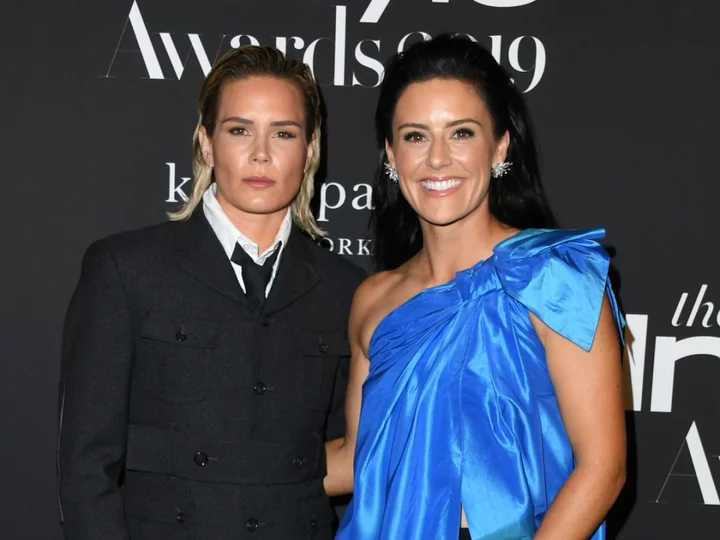
Ashlyn Harris breaks silence on ‘brutal’ cheating rumours following divorce from Ali Krieger
Ashlyn Harris has addressed rumours she cheated on ex-wife Ali Krieger amid her new rumoured romance with Sophia Bush. The former US National Women’s Soccer Team player took to her Instagram on 18 November to share a lengthy statement following her divorce from Krieger. In her post, Harris denied cheating rumours and revealed how the subsequent “online hate” has negatively impacted her mental health. “Several weeks ago, a process that had been ongoing privately for some time became public,” Harris began. “Ending a relationship after almost 13 years of friendship, teammate-ship, marriage and co-parenting (many of them good years) is a decision that was not made lightly.” “We agreed to centre our children, continue therapy, separate, and to move forward with our lives. Two happy families are always better than one unhappy one. This process is never easy, but we were making our way through,” she continued. Harris explained that the former couple were advised by their agents and representation to keep news of their split private until after Krieger finished her NWSL season earlier this month. However, the 38-year-old athlete revealed that “a leak (a betrayal of our deepest confidence) made that impossible”. “The online hate that has happened since has been one of the most personally devastating experiences of my life,” Harris said. While she noted that she was encouraged “not to feed the beast” of negative online comments, Harris maintained that the past few weeks have “devastated my mental health”. She added: “This has been brutal.” Harris claimed that she has received online death threats since her divorce, as well as comments from trolls criticising her two children - daughter Sloane, two, and one-year-old son Ocean - who she shares with Krieger. “Words matter. The cheering on abuse, the people clamoring to encourage me to commit suicide, and the cruel words spoken about my children and who I am as a mother? Those words matter,” she said. “Someday my kids are going to be able to read the hate that strangers on the internet wrote, all because those strangers had an unsolicited opinion on my health and happiness? What are we doing here?” Harris then addressed why she and Krieger split after four years of marriage, writing: “People have run with a narrative that’s unbearably painful. Not all marriages last forever. Ours did not. For many reasons.” The former soccer pro admitted that the “false narratives” surrounding her marriage may be “juicier or make a better headline”, but the rumours that she cheated on Krieger were “simply not true”. “Let me be clear: I did not step out on my marriage. I was always faithful in my marriage, if not always totally happy. Like in many partnerships, there was work and therapy and processing done. None of this happened on a whim,” Harris said. “We spent the entire summer working to tackle the separation and divorce steps outlined for us by our therapists, lawyers, and our shared agency.” The former USWNT star explained how by “finally choosing my own health and happiness”, she has also “chosen a better future for my kids”. However, Harris claimed that she’s had “an entire community turn on me” in the wake of her divorce. “I’ve spent my whole career trying to build an inclusive space where people can show up as themselves and where they know they will be safe,” she continued. “Right now, it feels like the entire community has poured gasoline on me and lit the matches. So many of you, including people who stand publicly as anti-bullying advocates, have cheered this on like bloodsport. As though a family in transition is on opposing teams. Like a divorce is a battle, one person stands to win.” Harris wrote that her number one priority is her children, and being a “good co-parent” with Krieger. “Despite this current darkness, there have been years of love between us. And our kids are the best part of it all,” she said. “They deserve two healthy and happy parents, and that’s what matters most. We are all in pain.” The retired soccer pro concluded her statement by reminding people that “bullying anyone about a personal decision, especially when that bullying is rooted in lies, really hurts”. “I’m hoping that instead of continuing this cruelty you can remember the simple truth that I’m a human being, a mom, and a good person just trying my best. I’d appreciate if you could take a breath and treat me and my family with some humanity,” she finished her statement. It was reported in October that Harris had filed for divorce from Krieger after nearly four years of marriage. The ex-goalkeeper filed the court documents in Florida’s Seminole County on 19 September. According to ESPN, the co-parents are required to decide on a parenting plan for their two adopted children. The soccer duo first met in 2010 while playing for the USWNT. Harris and Krieger were engaged in 2019 and tied the knot in Miami on 28 December that same year. Now, Harris is reportedly datingOne Tree Hill alum Sophia Bush, who also filed for divorce from husband Grant Hughes after just 13 months of marriage. “After being friends for years, and running in the same social circles, Sophia and Ashlyn went out on their first dinner date a couple of weeks ago,” a source told People last month. “This is so recent, and they are both beginning new chapters.” Meanwhile, a representative for Hughes told Page Six that he is happy for the new couple following his divorce from Bush. “Grant will always want the best for Sophia, and is supportive of all that makes her happy and fulfilled,” they told the outlet. Bush was previously married to her One Tree Hill co-star Chad Michael Murray from 2005 to 2006. Read More I present my children on Instagram like a fairytale – I’m now rethinking Will an adaptogen a day keep the doctor away this winter? Naomi Watts admits mid-thirties menopause felt like ‘the end of my worth’ I present my children on Instagram like a fairytale – I’m now rethinking Will an adaptogen a day keep the doctor away this winter? Naomi Watts admits mid-thirties menopause felt like ‘the end of my worth’
2023-11-21 00:52

These Roborock Vacuums Make Cleaning a Breeze—and Are on Sale for Black Friday
Get all the benefits of a sparkling clean home with none of the backbreaking work with Roborock’s deeply discounted lineup of robot vacuums and mops.
2023-11-21 00:48
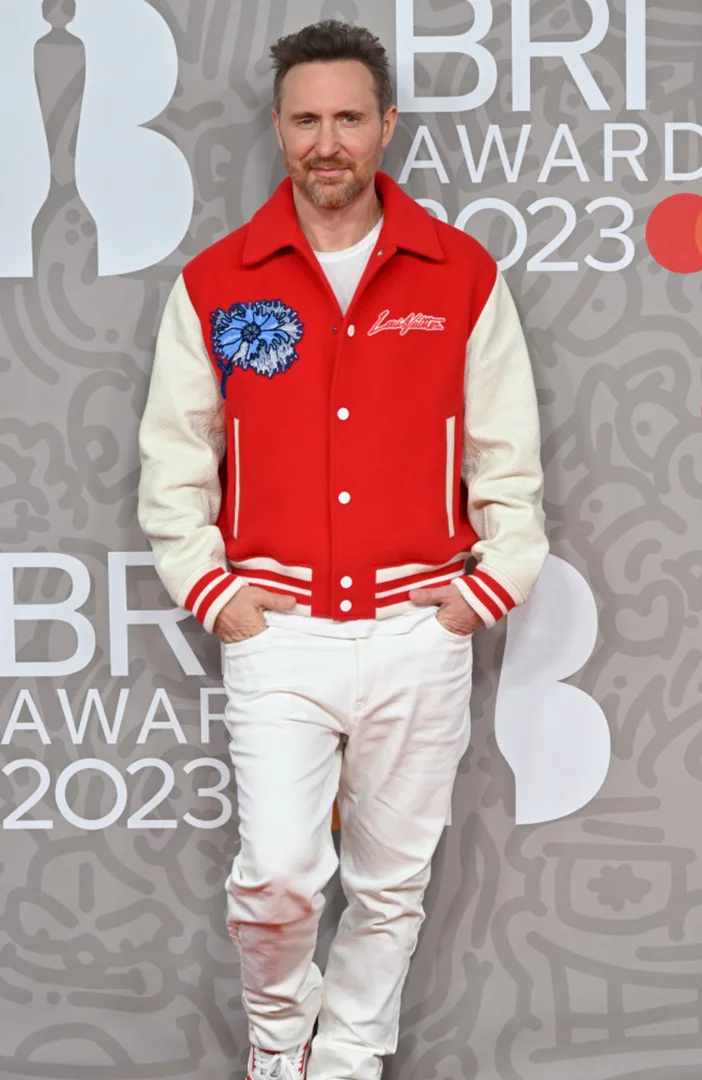
David Guetta had no plans to release Bebe Rexha track
David Guetta had no plans to release I’m Good (Blue) - his collaboration with Bebe Rexha - and credits TikTok with convincing him it could be a hit song
2023-11-20 16:19
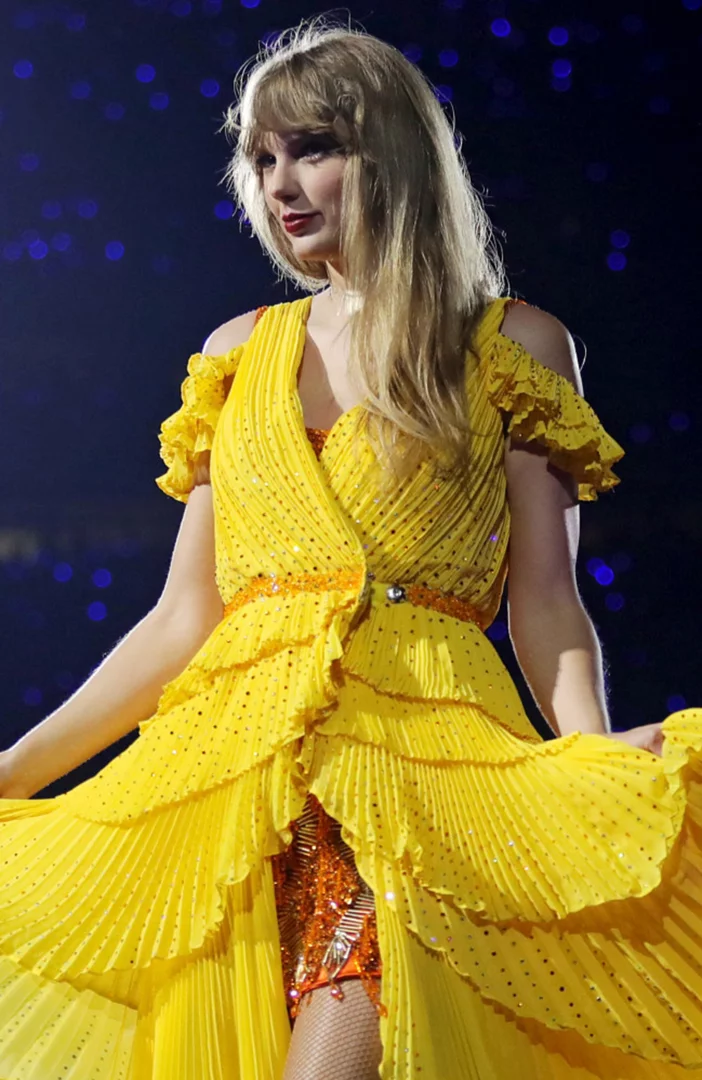
Taylor Swift gushes it was 'unreal' to win 10 prizes at 2023 Billboard Music Awards
Taylor Swift broke records and scooped 10 prizes at this year's ceremony and admitted it felt "unreal".
2023-11-20 16:18

I present my children on Instagram like they live in a fairytale – could it damage them?
Freshly cut roses. Sumptuous Marie Antoinette-style birthday cakes. Vintage Liberty dresses in Strawberry Thief fabric. Shetland ponies. These are some of the ingredients of my Instagram posts featuring my kids. I wouldn’t call myself a “sharent” by any means – someone who overshares their children’s intimate lives on social media in one long, parental “humblebrag”. But whenever I do post, it is picture-perfect. My kids look like they’ve walked straight out of a fairytale. But is it naff? Like tablescaping your kids? A form of digital narcissism? Is it, in its own unique way, a parental kind of “thirst trap”? To an extent, I’m luring others into a fantasy that doesn’t exist. I like to project a wonderfully idyllic life as a single mum... when quite frankly, it isn’t. It’s like when people try to woo their ex-partners back by posting shots of themselves half-naked and having the best time of their lives, despite crying into their pillow heartbroken all day and night. Some mums are professionals at posting perfect dreamy shots of their kids. Look no further than Carrie Johnson, Tamara Ecclestone, Stacey Solomon, and Kate and Rio Ferdinand. For celebrities and influencers, a picture-perfect ideal is the norm on social media – there are lots of cream interiors and matching Christmas jumpers. They might be promoting a homeware brand, or tagging a pram they got for free. Even when it’s tastefully done, like the former PM’s wife’s Instagram, it always gives the impression that motherhood is wondrous. That life is one big, happy Timotei advert. Even when celebrities try to be more candid, it doesn’t work. Mum-of-two Millie Mackintosh, formerly of Made in Chelsea, recently posted a “toddler tornado dump” on her Instagram. “I feel like it’s so easy to always share the nice, polished, life,” she wrote. “Well, today, I’m here to break that pattern.” The glimpse “into the delightful chaos” of Mackintosh’s maternal life included photos of a toothbrush and toothpaste on a bathroom basin, a bedroom littered with hair bows, and a make-up drawer with a few brown concealer stains on it. Really? Is that as bad as motherhood gets? For me, it’s simply more interesting to post magical rather than mundane shots. But why on earth do I want to present my kids as if they’re living in one long, tasteful pastel-coloured dream, where everything looks enchanting? No messy hair. No sleep deprivation. No kids bored out of their minds. I don’t require a filter, either – I’m already looking at life through rose-tinted spectacles, and expecting everyone else to do the same. But am I totally deluded? And, more than anything, could it be damaging to my children? Dr Charlotte Armitage, who is currently the duty-of-care psychologist on ITV’s Big Brother, has big concerns. “First of all, it’s impacting the relationship between the parent and a child because the relationship is contingent on the creation of these images and the number of likes that follow,” she says, adding that when you are “truly happy” with your situation, “you don’t tend to post perfect images”. It’s more important to ask ourselves the question of why we feel the need to present this kind of picture-perfect image of ourselves to the world. Is it because, in reality, we are discontented with our lives? Dr Charlotte Armitage, psychologist As parents, she continues, we are modelling behaviours to our children. “They learn by imitation – if mum is taking photos and seeking validation from likes, the child starts to become validated by these likes themselves and will develop an external focus of control; they will learn that validation comes from what others think of them. This is unhealthy because, throughout life, a child’s self-esteem and self-worth become based on what others think about them rather than how they feel about themselves.” The key, she says, is realising we shouldn’t use social media to fulfil our self-worth. “It’s more important to ask ourselves the question of why we feel the need to present this kind of picture-perfect image of ourselves to the world,” she says. “Is it because, in reality, we are discontented with our lives?” According to research, the average child today has had their image put on social media 1,300 times before the age of 13 – I can see this trajectory for my kids unless I put on the brakes. There are already widespread concerns over the data. In France, an anti-sharing bill continues to be discussed in the country’s senate, and parents could potentially be banned from sharing photos of their children on social media. It could also become mandatory for influencers to admit if a photo or video they posted was retouched or filtered. There is controversy over whether pictures of kids should even be posted online at all, as many are too young to even give permission. How will they feel about the spread of their image in the future? What happens if their identity is stolen – or worse, used by paedophiles? Does it promote a distorted reality of motherhood, compared with which other “normal” mums feel inadequate? And can it backfire on the parents when children’s rights in the digital era are not honoured? “Children tend to be frustrated or critical of the way their parents share images of them,” says Professor Sonia Livingstone, from the department of media and communications at the London School of Economics and Political Science. “Not because they are made to seem ‘perfect’ but because they can be embarrassed, even shamed, in the eyes of their peers. Meanwhile, parents feel hugely under pressure in many ways, both to be perfect parents and also because such images leave parents competing with each other and isolated in their own seemingly inadequate lives.” Dr Cosmo Duff Gordon is the founder of leading addictions clinic Start2Stop, and a psychologist in private practice at Chelsea Recovery Associates. He says that in his 20-year career as a psychologist, he’s “never had a parent sit in front of him and say ‘I’m addicted to Instagram,’” but that’s not because social media addiction doesn’t exist. He puts it largely down to “denial” – “not least since the use of social media can involve so many of the processes that usually characterise classic alcohol or drug addiction”. Denial being the number one culprit. “Obvious ones might be obsession, compulsion, capture of attentional focus and loss of control,” he says. “More subtly, social media use can involve the same sort of self-medication, or escape from reality, that addiction offers – and being a parent is hard. That’s why drifting into a fantasy land can be a relief from the daily grind of motherhood.” Parenting expert Hannah Keeley – aka “America’s #1 Mom Coach” – is more upbeat about mums posting potentially inauthentic photos of their kids. “The hardest truth to accept is that there are some mums who are actually professionalising motherhood to this level,” she says. “Not that they have achieved perfection, but they take pride in their performance as mums and use social media as a way to confirm that to themselves and boost their confidence to encourage their efforts. Should these mums also be obligated to ensure that all mums feel good about themselves, whether or not they have invested in their career to this level? Mums don’t have to be responsible for other mums’ perceptions.” After great debate and reflection, I’ve decided I’m happy with my Insta posts. They might be driven by my background, where my sister and I ran around in white nightdresses as if we had starring roles in Picnic at Hanging Rock. Or because I was conditioned to believe that how we look – even how thin we were – equalled self-worth. I’m not setting myself up to be a supermum. I don’t look at how many likes I get. It’s true that us mums also need to share our parenting experiences honestly, to let other mums know they are not alone. But for now, I’m not doing a U-turn – I’m just living the fairytale dream. Read More My daughter’s horsey hobby makes her happy, but our home now hums If poachers make the best gamekeepers, do siblings make the best babysitters? Mother’s song about how easy it is to be ‘such a good dad’ goes viral Will an adaptogen a day keep the doctor away this winter? Naomi Watts admits mid-thirties menopause felt like ‘the end of my worth’ Smoking causes 150 cancer cases every single day in UK, study finds
2023-11-20 14:47

10 Fascinating Facts About ‘Ex Machina‘
Alex Garland‘s directorial debut contains what might be the most dense, obscure in-joke in cinema history.
2023-11-19 21:28
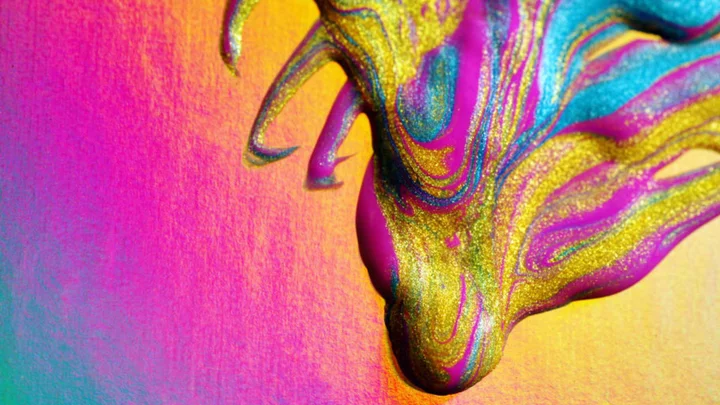
Watching Blobs of Paint Move to Chopin Is Oddly Soothing
This digital art piece from Thomas Blanchard set to Chopin’s Nocturne Op. ,9 No. 2 is oddly soothing.
2023-11-19 01:29
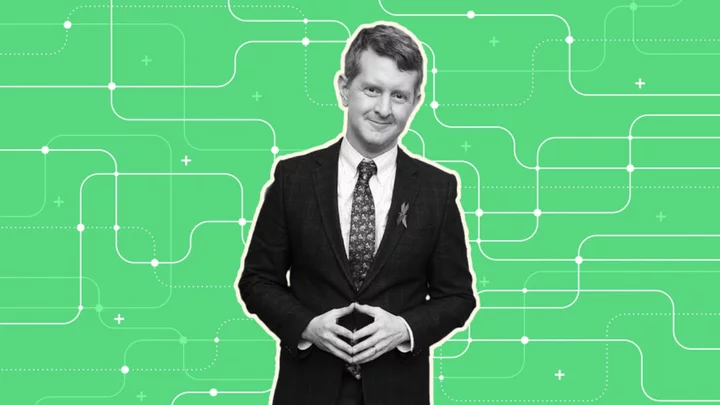
What’s the Kennection? #89
All five answers to the questions below have something in common. Can you figure it out?
2023-11-18 21:17

Chicken Run 2 director reveals why sequel took more than 20 years
Sam Fell "always wanted" to make a sequel to 'Chicken Run' but struggled to find a story and explains why the sequel to the 2000 hit is being released on Netflix.
2023-11-18 18:21

Mullets are officially back. And, no, we haven’t lost our minds
Everywhere I go, I am being stalked by mullets. Walk into a pub in the vicinity of Hackney, east London, and you, like me, will be haunted by the sight of them. Queue for a Fred Again concert and you’ll see an ocean of the things. Go to a rugby match at Twickenham Stadium, and there will be as many mullets as there are team shirts. Whether you know it as the mullet or the “Kentucky waterfall” or “beaver paddle”, they’ll have been in your sightline as of late. The hairstyle, which involves a shorter crop at the front, top and sides, and longer in the back, is currently being paraded by on-screen heartthrobs like Paul Mescal, Australian actor Jacob Elordi and American movie star Timothée Chalamet. In the world of sport, Spanish footballer Hector Bellerin, British rugby player Joe Marler and Formula One driver Valtteri Bottas have all rocked the hairstyle this year (and that’s not forgetting about 90 per cent of “Aussie rules” football players have mullets right now too). But its ubiquity in modern pop culture goes back a few years. Singer Lil Nas X, for example, turned up at the MTV Awards in 2021 wearing a curly, layered version of the hairstyle. Women have been wearing the coiffure even longer. Pop culture mainstays like Rihanna and Zendaya have both worn mullets on the red carpet, in 2013 and 2016, respectively. By 2021, Miley Cyrus was donning the style. That same year, Vogue hailed the mullet as the unlikely star of modern street style. The mullet has also stormed down fashion week runways, with Junya Watanabe, Stella McCartney and Alexander McQueen all incorporating the hairstyle into their 2022 shows. If that wasn’t enough proof of the mullet going mainstream, a failsafe method for judging something’s popularity is when that trendy thing gets banned in schools, or there’s a level of moral panic about it. That happened last month when a Sunderland schoolboy’s mullet was decided to be so “extreme” that he was put in isolation and ordered to chop it off. Meanwhile, even more Brits are trying to catch up with Australian mullet culture: a doctor from Dorset made headlines this week as he has been growing his locks in preparation for the world mullet growing championships in Australia, a contest that he said was “widely considered to be the Everest of the competitive mullet growing world”. We’ve all gone mullet mad. Though the name itself wasn’t coined until two decades ago – the Oxford English Dictionary credits the Beastie Boys’ 1994 song “Mullet Head” for the popularisation of the word – the mullet existed long before that. In his book Mullet Madness, Alan Henderson writes that prehistoric people may have figured out that having their hair cut shorter at the front and longer at the back meant they could keep their hair out of their eyes and their necks still toasty. What’s more, Ancient Greek texts referenced men with mullet-style cuts, while depictions of Greek gods that date back to the 6th century suggest that the hairstyle existed even then. In certain indigenous populations in the US, long hair symbolises power and a connection with the divine, and a version of the mullet – the front spiked and the back long – is considered a traditional style in tribes of the western United States like the Blackfoot and Crow. The version of the mullet we see in popular culture today, though, strongly harks back to David Bowie’s tangerine-orange waterfall-style mullet worn as his alter ego Ziggy Stardust. In the Seventies, it set a cultural precedent for the mullet as a fashion statement. Back then, the hairstyle was subversive. It spurred strong reactions from the more conservatively coiffed elite because it refused to conform to any one standard: the mullet is both long and short; masculine and feminine; somehow, scruffy while slick. The mullet’s return could be seen as a happy accident. In lockdown, men would scissor away at their locks, crafting eccentric hairstyles out of sheer boredom, sharing pictures of the resulting cut to their respective WhatsApp group chats. But that comedy mullet has since died out. A fashionable, en-vogue hairstyle has stuck around. In searching for the perfect modern mullet, men have downed tools and turned to the professionals for help. Ryan Lewis, owner of Club 13 barbershop in Hull, says that about one-third of his customers are opting for mullets. “Its presence within combat and contact sports alone conveys a modern masculinity that has trickled down into the mainstream,” he says, adding that the “harsher cuts” seen in rugby culture are being cancelled out by the more subtle, feathery mullets worn by Mescal et al. “The modern mullet is bringing a more natural and effortless look with a softer and less obnoxious shape.” James Doyle, the manager of Bristol barbershop Harry Blades and Angry Daves, says it’s not just people who work in non-corporate environments who are taking the plunge, either: it’s becoming workplace-appropriate. “You would think it’s only the musicians or creatives,” he says. “But I’ve got a couple of accountants that are rocking mullets. Anyone and everyone seems to be jumping on the trend.” The mullet trend allows men to be more expressive and embrace their individuality. I had a sixth form student come in the other day and ask for a mullet – young men are becoming more daring with their hair Samantha Perkins, salon owner and lecturer The style has become so sought after that hairdressing schools are changing the way they train stylists, too. Samantha Perkins is the owner of the salon Hair by Sam and lectures at the London Hairdressing Academy, and says that the academy has launched special masterclasses in the art of cutting mullets due to popular demand. “It’s very technical,” she explains. “It’s cut with scissors and razors, so without using clippers – so it’s already a level three cut without a doubt. Students really need to understand the hair type to execute the look.” Perkins adds that the supremacy of the cookie-cutter “short back and sides” haircut that has dominated men’s hairdressing trends for the past decade is on its way out. “The mullet trend allows men to be more expressive and embrace their individuality,” she says. “I had a sixth form student come in the other day and ask for a mullet – young men are becoming more daring with their hair.” Michael Kent, a stylist at Blue Tit hair salon in London, agrees that the popularity of the mullet hairstyle has opened up a new way of self-expression for men. “Men’s hair has always been so bland and [the mullet] has allowed people to really embrace their individuality. In popular culture, a lot of people are more comfortable in their sexuality and diversifying so much. We’re seeing a lot of clients coming in and asking for a cut like Timothée Chalamet’s. Before, people would ask for Ed Sheeran’s hair, so you can see how it’s changing.” The mullet is not just limited to men, either. The coif has long been donned by famous women (Scarlett Johansson, Joan Jett and Dolly Parton have all worn variations of the style over the years), and both Perkins and Kent say they have women customers asking for the same. “The mullet is a genderless cut,” says Kent. “Women and men are really embracing it – it’s an androgynous look.” And if you want to try the mullet yourself, Kent assures me it suits most people: “It’s like a wig you can put on anyone!” Read More Women’s scarves and crocheted ties - what is Robert Peston wearing now? I salute Dolly Parton’s beauty routine – no one sees me without my make-up How Naomi Campbell proved all her haters wrong – including me Women’s scarves and crocheted ties - what is Robert Peston wearing now? I salute Dolly Parton’s beauty routine – no one sees me without my make-up How Naomi Campbell proved all her haters wrong – including me
2023-11-18 14:57
